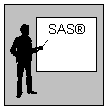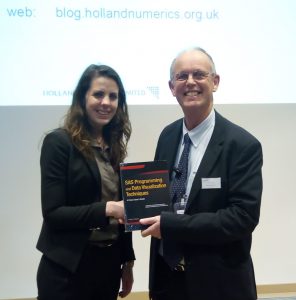![]()
Way back in September 1992 I was working at CentreFile, a software subsidiary of NatWest Bank. Unfortunately, the financial environment at that time required NatWest Bank to bring much of the outsourcing done within CentreFile back inside the bank, so I was one of the 17% of the IT staff made redundant.
Undeterred I decided to become a freelance SAS programmer and landed a 3-month SAS contract at Janssen Pharmaceutica in Belgium in October 1992, where the financial environment was better. This contract was a fixed price contract for 9 weeks, but I finished all of the expected work in 7 weeks (which didn’t please the client!), so it was agreed that I “work” a further week in Belgium before completing my stay there!
There followed a 14-month contract at Euroclear, a securities bank in Brussels, where I was living in an apartment belonging to a hotel. This is where I really developed my love of finding new beers! I was not the only English-speaking SAS programmer there, as English, Australian and New Zealand programmers were also part of the various teams in Euroclear (and I am still in contact with them), and we would meet on Wednesday evenings for “Contractors Night Out”, starting the evening by watching Star Trek in my apartment (with a Belgian beer from my well-stocked fridge!), and then exploring the vibrant beer and food culture in the centre of Brussels. I will always be grateful for the beers in the supermarket GB Inno that I walked past on my way back to my apartment.
Returning to the UK I then worked on a wide variety of SAS programming contracts between 1994 and 2002, including pharmaceutical development for Glaxo and Praxis, HR systems for Asda and Zurich Insurance, marketing and risk databases for Barclaycard, Pearl Assurance and Ford Credit Bank, and fraud operations for Barclaycard.
My final contract before 9/11 was at Ford Credit Bank, where CNN was shown on screens next to the lifts. We watched in horror as 9/11 evolve in real-time on those screens. The effect on the finance sector was almost immediate, and SAS contracts in banking and insurance became extremely scarce. Fortunately Ford Credit Bank honoured my contract which ended in March 2002. Holland Numerics Limited then spent the rest of 2002 without any significant income, and I was temporarily employed by Bayer Vital in Leverkusen for 3 months later that year.
In 2003 the SAS contract market improved a little and I was able to work on an online campaign manager application for Proximity, before joining the Epidemiology team at GSK until 2005, when I started a 10-year spell at Amgen, where I was mostly involved in observational studies. It was during this period that I discovered the benefit of publishing SAS papers. I had written a paper on how to improve mainframe SAS and DB/2 performance back in 1997, which had been read by someone at the European Patent Office in 2004. They contacted me and I spent several days investigating on-site in The Hague, and then writing and presenting a paper explaining how to fix their problems for their senior management. This included adding a simple sort, which improved the elapsed time of a single step from 7 hours to 3 minutes! The fundamental truth I demonstrated was that developing on a Windows platform was OK, until you involved sorting, which is built into the mainframe operating system.
Following 10 years at Amgen I spent a year at Syne Qua Non, a brief SAS ODS Graphics remote contract with Astellas in Chicago, and then 5 years at Roche, before my current SAS contract with Veramed. This contract actually takes me back to 2002, where I shared an office with the now CEO of Veramed. The take-home from this contract is that you should keep good contacts with all of your business friends, because you never know whether they could help you in the future!
Now why would I be telling you this story about my company? Well, I am approaching retirement (I’m already beyond the statuary retirement age in the UK), but I have a lot of SAS-related knowledge that I am very keen to pass on to younger SAS programmers. My entire collection of SAS conference papers can be freely downloaded from this blog site. Registered members of my blog site can have free access to all the issues of VIEWS News since 1998, as they are stored on my blog site. My SAS licensing depends on earning enough in SAS contract fees to pay for it, so future SAS contracts will be helpful to maintain this site. Finally, if you would like to learn about how to be a good SAS programmer, performance analyst, or graphics designer, then I’ll be happy to spend time helping you (and your colleagues) using my appointment calendar.
I have spent 30 years working for Holland Numerics Limited. How long I continue to work will ultimately depend on you!



You must be logged in to post a comment.